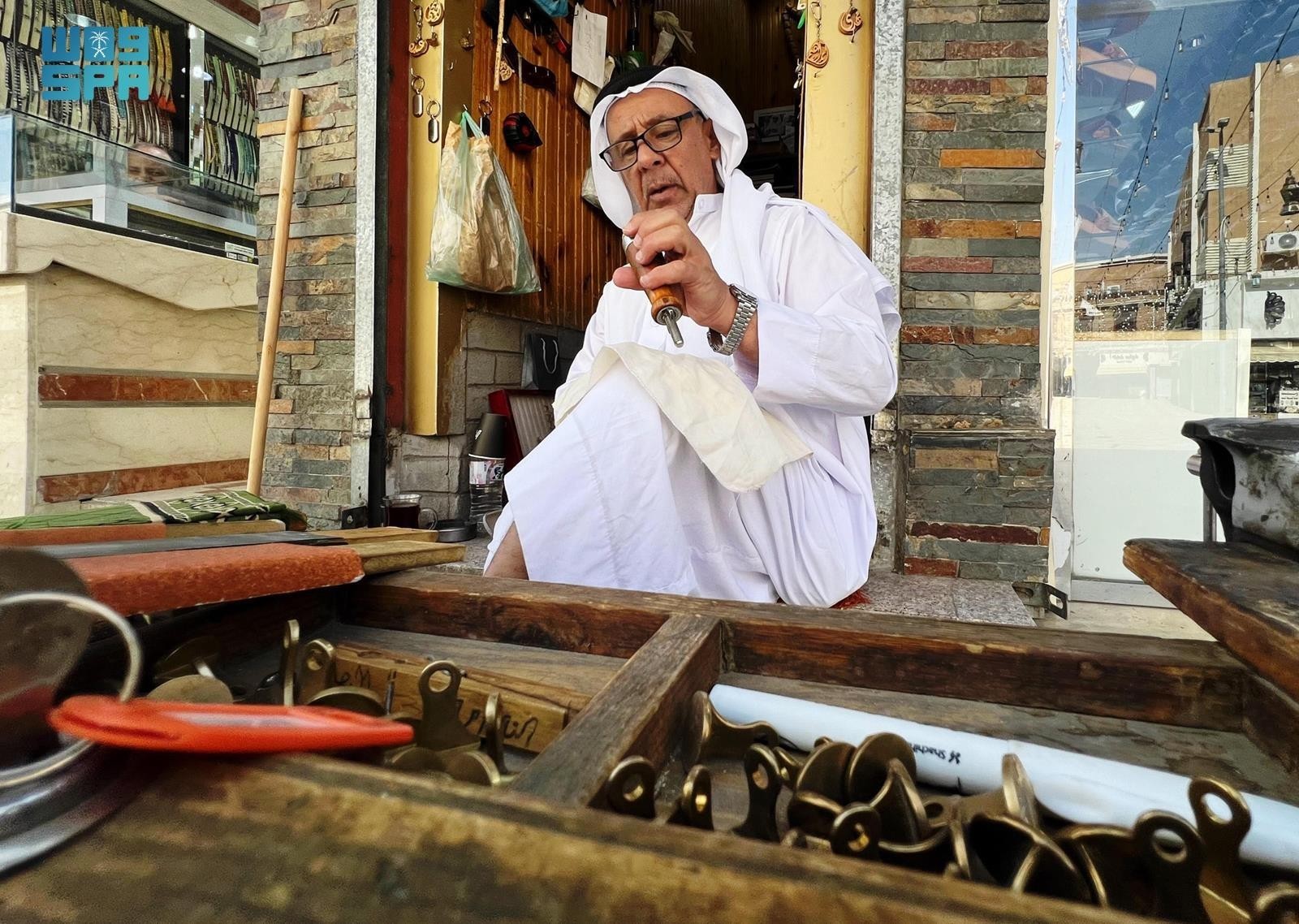Seals in Saudi Heritage: Emblems of Identity and Authority

Taif, August 10, 2025, SPA -- In the Kingdom of Saudi Arabia, seals carry deep cultural and social significance, having historically served as a kind of personal fingerprint and functioning as legal and official witnesses in daily transactions and social dealings long before handwritten signatures or printed names became widespread.
In an interview with the Saudi Press Agency, Abdulhai Al-Nahari, a seal engraver in Taif’s historic market, highlighted the symbolic importance of seals in Saudi society. He explained that seals embody their owner’s identity through engraved names or symbols, sometimes including expressive symbols, indicating affiliation, status, or authority.
Al-Nahari said that he inherited the craft of seal engraving from his father. He recalled learning to engrave on various materials such as copper, silver, gold, and stone. He noted that the symbol engraved on a seal served as an official signature, recognized as legal proof, and is still considered a valid form of identification today.
He also highlighted the "seal ring" as one of the most prominent traditional forms, describing it as a metal ring typically made of copper or silver and engraved with a name or symbol. These rings were used to seal documents made of clay, wax, or paper and are still found in traditional markets, worn as jewelry that combines personal expression with legal function.
Historian Issa Alwan noted that throughout Arab history, seals were the primary tool for documentation before the widespread use of pen and paper. He explained that their use dates back thousands of years, playing a fundamental role in public life and administrative processes. Seals were used to legitimize contracts, document wills, and authenticate correspondence, serving as guardians of identity in pre-modern times.
Alwan added that personal seals remain relevant in modern-day Saudi Arabia, particularly within official departments, where they continue to play an essential role in the documentation system, reflecting a long-standing tradition rooted in Saudi cultural heritage.
-- SPA





